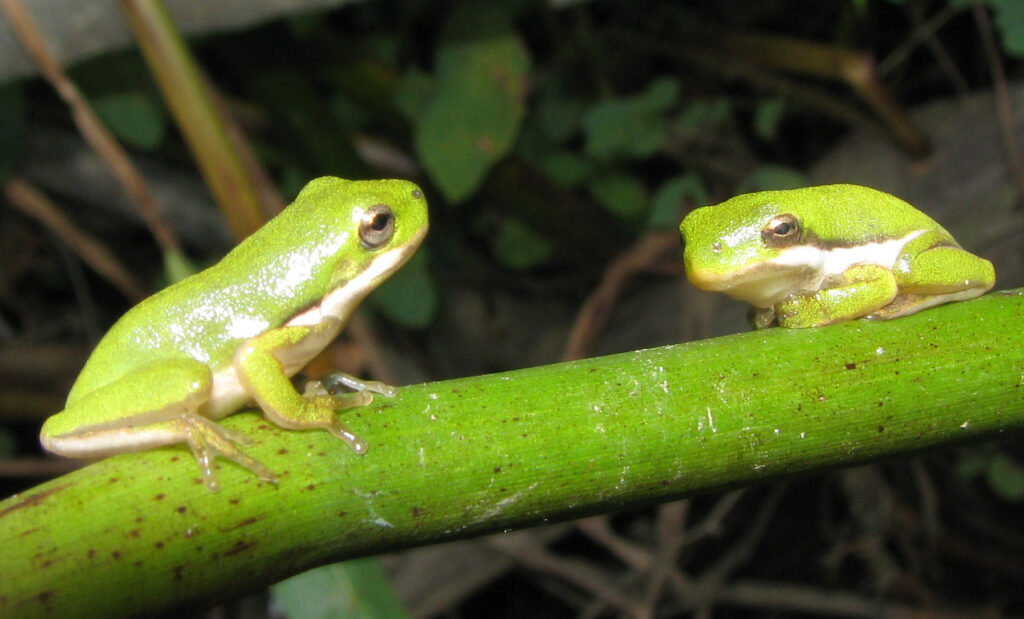Let’s work together to create a positive outdoor ethic to keep herps and their habitats healthy!
- Prepare.
- Know the local and state regulations. In some states and areas, it is not legal to pick up amphibians and reptiles without a permit.
- Learn about species that might be present in your area, especially those that might be venomous.
- Disinfect.
- Diseases and chemicals like sunscreen and/or insect sprays may accidentally be spread to wildlife and the places they live. Amphibians, in particular, have sensitive skin that can be harmed by chemicals on our hands.
- Always wash your hands and clean your gear before heading out and in between sites. Here is a link to a video where we cover basic disinfection information: https://youtu.be/ax6dx72xOCQ
- Disinfection also helps reduce the spread of invasive species!
- Respect.
- Try to follow and model no capture techniques. (Look with your eyes, but not your hands). This helps reduce stress to the animal, the spread of disease, and potential harm to the animal.
- Consider potential harm to sensitive habitats that amphibians and reptiles use. Stay on the trails. Limit how many logs and rocks you flip, respect the microecosystems underneath, and ensure you don’t accidentally crush animals when flipping the log back over. Avoid entering still water and stirring sediment.
- If capture is necessary, try to limit the time animals are held and use protective measures, like placing salamanders in plastic baggies, to protect them.
- Keep wildlife wild.
- Protect.
- When posting about wild amphibians and reptiles online, consider only disclosing county-level location information and obscuring data on community science platforms like iNaturalist.
- Keep pets on a leash when exploring natural areas to prevent potential harm to your pet or to wildlife.
- Be Safe.
- If an amphibian or reptile is in need of help (like crossing the road), consider your safety and the safety of others before assisting.
- Always take injured or orphaned wildlife to licensed wildlife rehabilitators or veterinary professionals.
- Engage.
- Lead by example. We all are constantly learning, and the more we know, the better we can be!
- Celebrate amphibians, reptiles, and places that they live! Check out our awareness weeks like #AmphibianWeek and #WildTurtleWeek.


